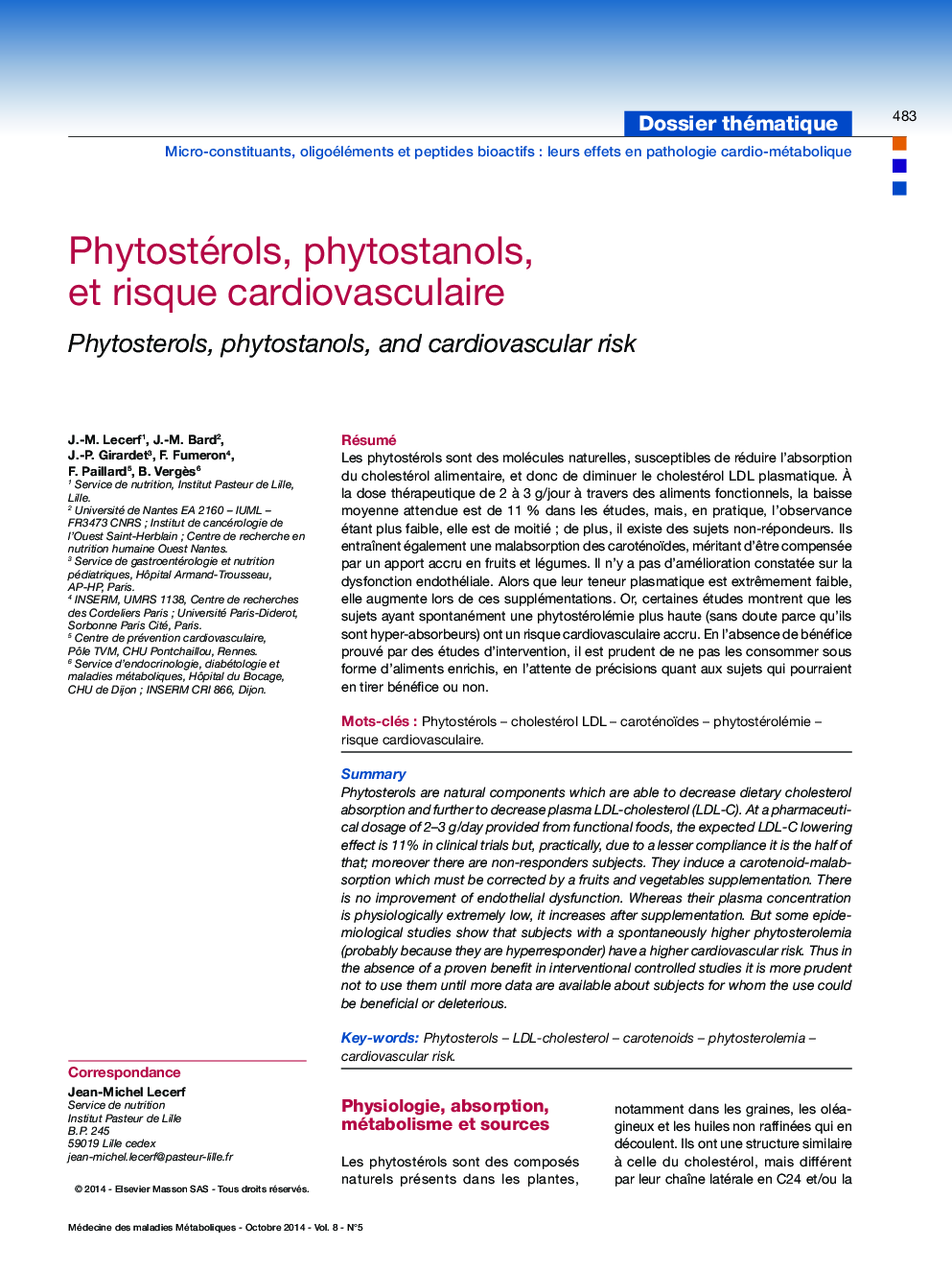| Article ID | Journal | Published Year | Pages | File Type |
|---|---|---|---|---|
| 3274456 | Médecine des Maladies Métaboliques | 2014 | 6 Pages |
Abstract
Phytosterols are natural components which are able to decrease dietary cholesterol absorption and further to decrease plasma LDL-cholesterol (LDL-C). At a pharmaceutical dosage of 2-3Â g/day provided from functional foods, the expected LDL-C lowering effect is 11% in clinical trials but, practically, due to a lesser compliance it is the half of that; moreover there are non-responders subjects. They induce a carotenoid-malabsorption which must be corrected by a fruits and vegetables supplementation. There is no improvement of endothelial dysfunction. Whereas their plasma concentration is physiologically extremely low, it increases after supplementation. But some epidemiological studies show that subjects with a spontaneously higher phytosterolemia (probably because they are hyperresponder) have a higher cardiovascular risk. Thus in the absence of a proven benefit in interventional controlled studies it is more prudent not to use them until more data are available about subjects for whom the use could be beneficial or deleterious.
Keywords
Related Topics
Health Sciences
Medicine and Dentistry
Endocrinology, Diabetes and Metabolism
Authors
J.-M. Lecerf, J.-M. Bard, J.-P. Girardet, F. Fumeron, F. Paillard, B. Vergès,
